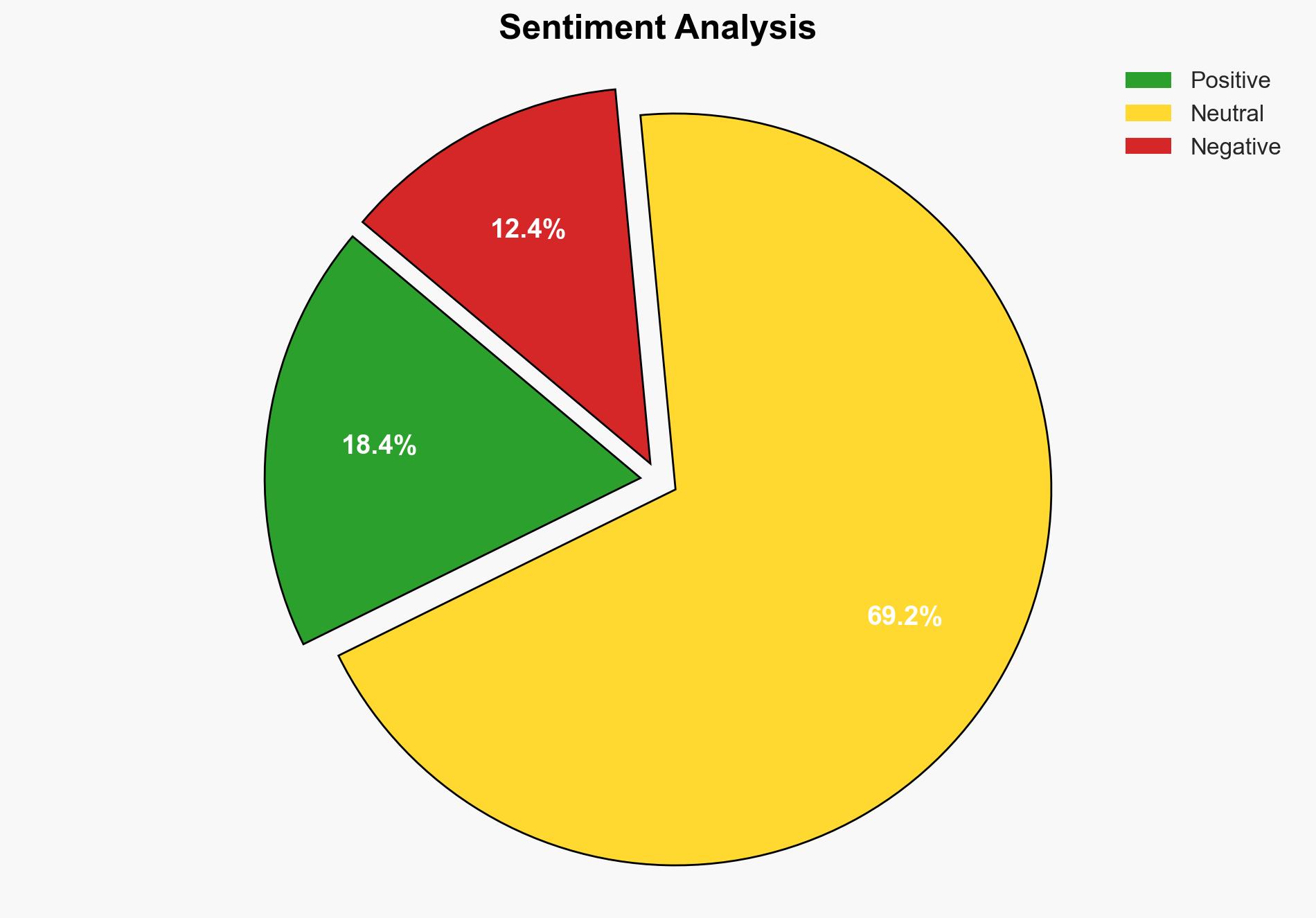Treasury Narrows Scope Of Corporate Transparency Act – Forbes
Published on: 2025-03-24
Intelligence Report: Treasury Narrows Scope Of Corporate Transparency Act – Forbes
1. BLUF (Bottom Line Up Front)
The Treasury Department has implemented an interim final rule to narrow the scope of the Corporate Transparency Act (CTA) by exempting domestic reporting companies from beneficial ownership information (BOI) reporting requirements. This change aims to alleviate the regulatory burden on small businesses while maintaining national security interests. The decision aligns with broader policy directives to reduce regulatory costs and enhance economic prosperity.
2. Detailed Analysis
The following structured analytic techniques have been applied for this analysis:
General Analysis
The new regulation exempts domestic reporting companies from BOI reporting, recognizing their role as the backbone of the economy and the financial burden compliance imposes. The exemption is justified by the need to support small businesses during financially challenging times. The CTA, initially enacted as part of a broader anti-money laundering initiative, required entities operating in the U.S. to report beneficial ownership to the Financial Crimes Enforcement Network (FinCEN). However, the regulation faced legal challenges, leading to revisions that now focus on foreign reporting companies.
3. Implications and Strategic Risks
The exemption could reduce transparency in corporate ownership, potentially increasing the risk of money laundering and illicit financial activities. However, it also supports economic growth by reducing compliance costs for small businesses. The regulation’s alignment with the executive order to reduce regulatory burdens reflects a strategic shift towards economic prosperity. Nonetheless, the risk of shell companies and complex structures concealing beneficial ownership remains a concern, particularly in foreign jurisdictions.
4. Recommendations and Outlook
Recommendations:
- Enhance monitoring and enforcement mechanisms for foreign reporting companies to mitigate risks associated with reduced domestic transparency.
- Invest in technological solutions to streamline compliance processes and reduce costs for small businesses.
- Consider periodic reviews of the regulation’s impact on both economic growth and national security.
Outlook:
Best-case scenario: The regulation successfully reduces compliance costs for small businesses, boosting economic growth without compromising national security.
Worst-case scenario: Reduced transparency leads to increased illicit financial activities, undermining national security efforts.
Most likely outcome: A balanced approach where economic benefits are realized while maintaining sufficient oversight on foreign entities.
5. Key Individuals and Entities
The report mentions Donald Trump and the Secretary of the Treasury as influential figures in the policy direction. The Financial Crimes Enforcement Network and the Financial Action Task Force are key entities involved in the regulation and its implications.





